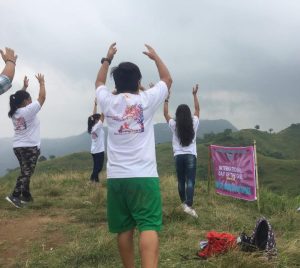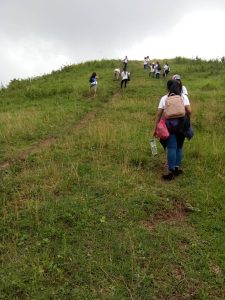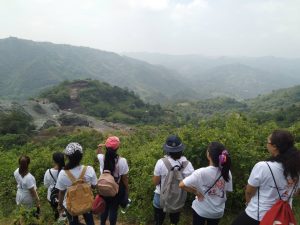Earth Day – Investing in our Planet
It’s World Earth Day today and many of our projects have been feeling the impact of the environment in the past few years.


“Because you can see how the mountains are being destroyed by mining and we are looking at the wounded mother Earth on top of the Hills.”

The typhoon also directly impacted our staff from Cebu. Many communities in Cebu City were without power or access to clean drinking water for almost three weeks.
The GSHEART aftercare compound was affected, the roof of the duplex where the program participants residents lived was destroyed and the women and our social worker had to face the rage of the storm bracing themselves inside the unit.
“They were able to evacuate in the seminar house on foot after the rage subsided,” our Project Coordinator, Sr Virgo Espineda RGS, told us at the time.
“The duplex was newly renovated in preparation for their upcoming renewal of license from the welfare agency and accreditation too.”
For several days potable water for drinking was scarce and even for washing, taking a bath, and, other purposes. They boiled water for drinking and when drinking water became available the price shot up from 20 pesos a barrel per refill to 60 pesos.
“Food was a most vital necessity during this time, so religious congregations opened their doors to share their water supplies and food to people in need,” she said.
“Lacking in response was the local government….Garbage piled up on sidewalks, water sources had to be initiated by the people, even cutting of trees, or electrical posts to make the roads passable became the people’s initiatives too.”
For vulnerable girls in Davao City, Mindanao, where our Balay Banaag project cares for 15, six-18 year old vulnerable girls, the typhoon caused their two septic tanks to overflow.
“Two septic tanks have been overflowing as a result of the last typhoon and is creating a bad smell,” reports one staff member. “The septic tanks are ten years old and new cemented safety tanks are required.”

 SHOP
SHOP




